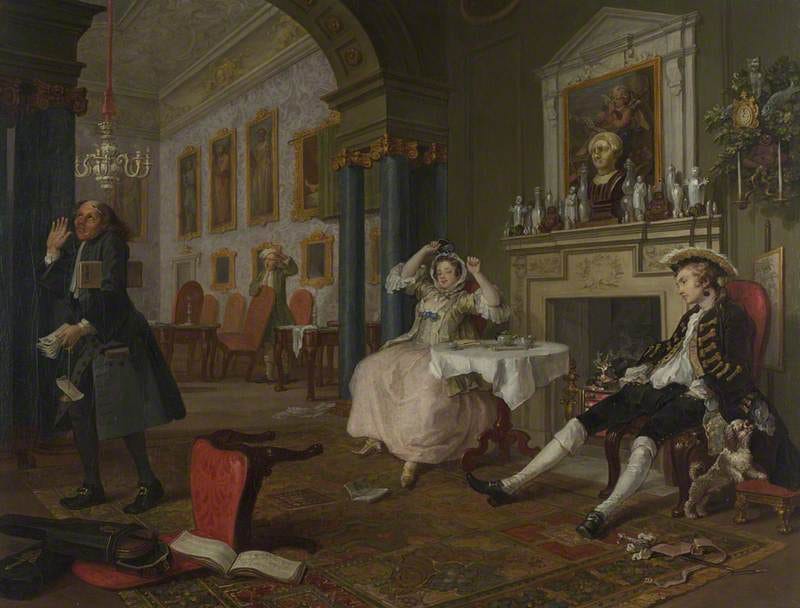“I think there is not one man in an hundred whom a woman of sense and spirit can either honour or obey, though you make us promise both, in that solemn form of words which unites or rather binds us to you in marriage”
Dear friends,
As we approach the final stages of the novel, any hope that Lovelace might feel genuine remorse is dashed. He is still unable to grasp the magnitude of what he has done, asking: “What did I do worth a woman’s breaking her heart for?” In letter 515, he writes page after page in an attempt to justify himself and prove that he is not responsible for Clarissa’s death:
“Is death the natural consequence of a rape?… the sweet miser would break her heart, and die; and how could I help it?… had not the lady died, would there have been half so much said of it as there is?”
In his next letter, Lovelace reveals that his willingness to change evaporated with his recovering health: “all my old inclinations and appetites returned; and this letter, perhaps, will be a thorough conviction to thee that I am as wild a fellow as ever, or in the way to be so.” In one point only, Belford takes his side, arguing that both Clarissa and Lovelace were treated badly by her family:
“I must say, that the family, by their persecutions of the dear lady at first, and by their implacableness afterwards, ought at least to share the blame with him. There is even great reason to believe that a lady of such a religious turn, her virtue neither to be surprised nor corrupted, her will inviolate, would have got over a mere personal injury; especially as he would have done all that was in his power of repair it.”
This idea is open to debate, and we may have a very a different opinion to Richardson’s readers in his own day. In any case, Anna Howe threatens to have the letters published. Lovelace may yet be tried in the court of public opinion.
What then of revenge? The prospect of a duel looms heavily over this part of the novel, Richardson tempting us with the prospect of one last moment of action. Behind the scenes, Belford and Lord M are working hard to keep Lovelace and Colonel Morden apart. We even get a final, posthumous, letter from Clarissa (number 518) pleading with her cousin not to commit any violence: “Let the poor man’s conscience then, dear sir, avenge me.” How Morden will choose to act remains to be seen. In the meantime, he writes about Miss Anna Howe, touching on many of the novel’s earliest themes about female friendship and the pastime of writing. That he celebrates women writers sets him apart from the Harlowes and the rakes.
Anna continues to correspond with Belford about her proposed marriage to Hickman. Her letters reverberate with the novel’s earlier sentiments that women need to be on their guard; that men are, “Insolent creepers, encroachers, all of you! To show any of you a favour today, you would expect it as a right tomorrow.” She heaps blame on the male sex, arguing that wicked women are the product of wicked men:
“These women were once innocent: it was men that made them otherwise. The first bad man, perhaps, threw them upon worse men: those upon still worse; till they commenced devils incarnate — the height of wickedness, or of shame, is not arrived at all at once, as I have somewhere heard observed.”
Anna debates the value of marriage for women, her harsh treatment of Hickman, and what it might mean for her future. But it is fitting that her final letter is a tribute to Clarissa herself, singing the praises of her character:
“She was the nearest perfection of any creature I ever knew.”
I’ll post again in mid-November to cover that month’s letters, before the finale in December.
If you would like to follow our read-along please subscribe below, visit your Substack subscription settings and make sure Letters & Libations is checked. Please get in touch if you would like to be added to the Instagram chat group.
Featured image is ‘Marriage A-la-Mode: The Tête à Tête’ by William Hogarth, 1743. © The National Gallery, London.


